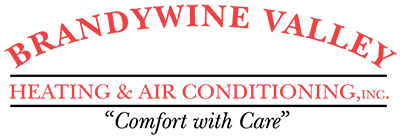HVAC tips to keep you warm this season:
Prepare Your Home for Winter
You do NOT have to be a professional to be prepared. It can be as simple as caulking around windows and adding weather strips underneath outside doors. This will not only keep the warm air in your house but keep the cold air out. It’s an efficient way to ensure your comfort this winter without raising your heating or electric bills.
Close off the Chimney
If you’re not using your gas or wood-burning fireplace, there’s no reason to keep the damper open. A damper is a movable plate that sits above the fireplace, right before the flue. When it is closed, the damper helps keep heated air from going up the chimney and prevents cool outside air from entering. When open, these allow the smoke from a fire to exit the home. This is due to a vacuum effect, which will also suck up the warm air in your home. If you close the damper while the fireplace is not in use, you can save on your home heating expenses. Note that for safety following the use of your fireplace, you should be sure to wait until all embers are extinguished and all the smoke has cleared from your home before closing them. Do not use your fireplace with a completely or even partially closed damper.
Leave the Thermostat alone!
Just like setting your thermostat to a super low temperature won’t make your air conditioning cool any faster, neither will raising your thermostat drastically high make your furnace or heat pump heat any faster. This will only damage your unit and raise your heating costs substantially. The key to having your house warm when the cold hits is to start warming beforehand. If you wait until your house is freezing, then you’re going to have to bundle up with winter clothes or use space heaters until it warms up. That brings us to the next point.
Make Use of Electric/Portable Heaters
If you need supplementary heating, use a portable space heater. That way, you don’t have to get your heater running every time you get chilly, specifically in the early weeks of fall. Keep in mind that you should turn off these heaters if you aren’t going to be in the room with them. Be mindful of the level of electricity required to power some of these larger space heaters. Leaving this equipment unattended is a safety hazard.
Change Your Furnace Filter
This is something that you would have done when you received your Preventative Maintenance tune-up in the fall; but if you haven’t, use this opportunity to change your furnace filter. Ideally, this should be done before the start of the heating season. This will ensure that ensure proper airflow and quality in your home. A dirty filter can impact these as well as the efficiency of your unit.
Design a Shelter for Your Outdoor Unit
If you are expecting snow and ice, you might want to consider building a shelter for your outdoor unit. You do not want to completely cover your unit, as this can seal in moisture and cause corrosion; and you should NOT cover a heat pump, as these units run all year round. What you want is to protect the fan without completely closing the unit off. If the fan freezes, the unit won’t be able to work properly. It will try to start up continuously until it eventually goes out. A simple lean-to or roof-like structure built from fencing materials will be more than sufficient to protect your outdoor unit from the winter elements.

